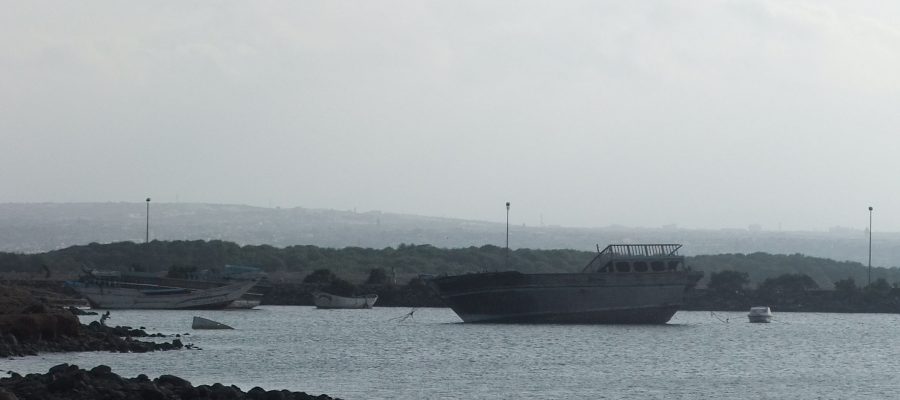Cet appel à contributions a été originellement posté par Zaccaria Massimo sur le réseau H-Horn.
1. Argumentaire original (en anglais)
The idea that WWI has been a global conflict is commonly accepted by the scholarly community and it constitutes a real leitmotif of the most recent literature on this topic. As a consequence of this development, a number of scholars has started investigating the impact of WWI on Africa, Asia, the Middle East, and even Latin America.
This book, capitalising on a conference held in Addis Ababa on september 2016 aims to suggest an analysis of the conflict that focuses on three crucial points. The first one is related to space. It seems to us that the framework of the nation state is too circumscribed and does not allow to capture the complexity of the relations that came into being at local, national and international level. In this regard we find particularly inadequate the conventional approach which tends to investigate WWI in Africa and the Middle East as two separate settings. Our choice to focus on a territory which stretches from Libya to Somalia is an attempt to overcome this hiatus. Embracing an area rather than a war theatre allows to connect colonies, states and territories that have maintained substantially different attitudes with regard to the war such as being belligerent, neutral and non-belligerent.
The second focus of the book is related to time and, more precisely, to chronologies. As a result of a long and vibrant debate, it is now taken for granted that military chronologies, are just one – and probably not even the most effective – of the possible periodisations of WWI. For the geographic area taken into account by the conference this issue is even more relevant. In fact, on one side some scholars suggest that the Libyan war of 1911-1912 could be taken as the real beginning for WWI. At the same time other scholars emphasise the fact that some of the consequences of the War stretched over a longer period of time and mention among their examples the Egyptian revolution of 1919 and the subsequent independence of 1922, the nationalist movement in the Sudan in the 20s, the political change in the Hejaz, and the British decision to hand over the Jubaland to Italy in 1924. Though some of these suggestions can be criticised, it remains sure that the transition from peace to war and from war to peace in the region lasted well beyond the conventional framework 1914-1918 and that the ensuing political turmoil that engulfed the region significantly redrew the political map of the area.
The third and final focus of the conference is on agency. The conference want to shed light on how different local powers negotiated their involvement in the conflict, providing, in this process, ample evidence of their autonomy of judgement and of their independence in taking action. Tensions ignited by WWI interacted with complex pre-existing balance of power, which, in many cases, influenced the positioning and choices of the local actors.
With this call we look for contributions focusing particularly on Somalia, Egypt, Libya and Yemen with the aim to highlight the regional connections and the impact of WWI on Northeast Africa.
2. Sujets proposés (liste non limitative)
- Histoire politique, diplomatique et militaire
- Histoire économique de la guerre
- Aspects sociaux et culturels de la guerre et de son héritage
- Rôle de la société civile dans le conflit
- Retrouver les sources et les souvenir de la guerre
- La guerre et ses conséquences (mouvements anticoloniaux et nationalisme)
- Représentation de la guerre (dans la littérature, la musique, les beaux-arts, la tradition orale)
Appréhensions genrées de la guerre
3. Comité éditorial
- David Ambrosetti, Centre Français d’Etudes Etiopiennes
- Shiferaw Bekele, Université d’Addis Abeba
- Uoldelul Chelati Dirar, Université de Macerata
- Alessandro Volterra, Université de Rome 3
- Massimo Zaccaria, Université de Pavie
4. Chronologie
- 20 février 2017: date-butoir pour la soumission d’un résumé
- 17 mars 2017: notifications d’acceptation
- 1 juillet 2017: soumission des brouillons de chapitres (8000 à 9000 mots, en anglais)
- 1 septembre 2017: soumission de la deuxième version
- 30 octobre 2017: soumission de la version finale
- 2018: publication du livre
5. Modalités de participation
Le résumé doit prendre la forme d’un seul fichier PDF rédigé en anglais, envoyé par e-mail à zaccaria@unipv.it et incluant :
- un titre
- un résumé (350 mots environ)
- un bref commentaire pointant le ou les sujets proposés en lien avec le chapitre proposé
- vos identités personnelle et institutionnelle, vos coordonnées

